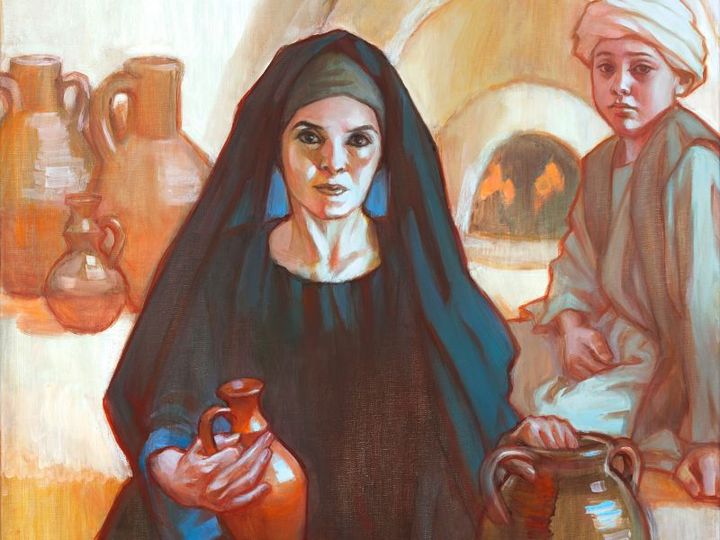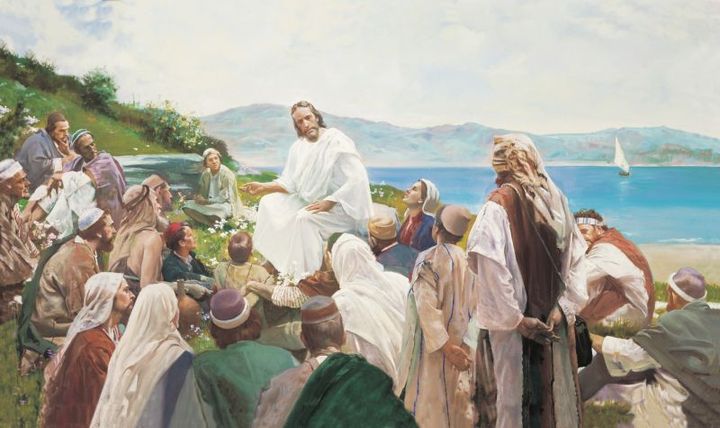Growing Through Adversity

We can be sure of a few things in life. Certainly, Heavenly Father will hear and answer our prayers. Of that I am absolutely sure. I testify that He is in the detail of our lives.
We can also be sure of death, taxes, that change is constant, that the economy will recover, and that we will be given opportunities to grow through experiencing adversity.
In April 2009, Elder Henry B. Eyring, Second Counsellor in the First Presidency, spoke on the subject of adversity. He said “...our Heavenly Father and the Savior...love all humanity. The very opportunity for us to face adversity and affliction is part of the evidence of Their infinite love. God gave us the gift of living in mortality so that we could be prepared to receive the greatest of all the gifts of God, which is eternal life. Then our spirits will be changed. We will become able to want what God wants, to think as He thinks, and thus be prepared for the trust of an endless posterity to teach and to lead through tests to be raised up to qualify to live forever in eternal life. It is clear that for us to have that gift and to be given that trust, we must be transformed through making righteous choices where that is hard to do.” (emphasis added) (Adversity, General Conference April 2009)
So, this is why we are constantly urged to:
· not make that one extra mouse click that will deliver so easily to your desk top computer an evil serving of pornography on the Internet
· why we should use another modern clicking device for good, the remote control on our TV’s, to quickly turn away from scenes that are so prevalent on prime time TV these days – if we can change channels when the ads are on, why don’t we do the same when an inappropriate scene is about to appear, scenes that put tiny black holes in our otherwise clean daily sheets of righteous decision making
· to walk away from a group of friends who are telling unsavoury jokes
· to return the extra dollar we are given at the supermarket
· to not buy immodest clothing just because it is on sale
· to say no when offered drugs, cigarettes or alcohol, and so on.
Making daily decisions when faced with difficult choices is when righteous and good characters are formed.
At the very moment of making these hard decisions, our natures are changed, little by little, and we become more God-like, decision by decision, until we take upon ourselves the attributes of a Christ-like character. This is one of the purposes of adversity. If we fail to make these hard decisions, we lose the chance to develop these characteristics.
It requires courage to make good choices, even when others around us choose differently. Elder W. Craig Zwick said:
"It requires courage to make good choices, even when others around us choose differently. As we make righteous choices day by day in little things, the Lord will strengthen us and help us choose the right during more difficult times.The teachings and values we cherish the most are not embraced by a secular world. To maintain a firm stance for ourselves and our children, the message of the restored gospel must be firmly planted in our hearts and taught in our homes." (We Will Not Yield, We Cannot Yield, General Conference April 2008)
The Saviour’s earthly mortality was one of making constant choices in the face of adversity. With each daily decision, he became more God-like until his short mortal mission was complete, and He was, perfect, except for being resurrected. He was indeed, the perfect example in so many ways. In the book of Hebrews in the New Testament we read:"Who in the days of his flesh, ... Though he were a Son, yet learned he obedience by the things which he suffered; And being made perfect, he became the author of eternal salvation unto all them that obey him" (Hebrews 5:7-9)
President Eyring spoke of another character trait that goes hand in hand with adversity. Like faith, hope and charity go together like the three legs on a stool, so too, adversity and courage go together like the two legs of a ladder. One without the other would cause the ladder to be unbalanced and fall.

Elder David A Stone said “Courage is the basis and foundation for all of our other virtues” (Zion in the Midst of Babylon, General Conference April 2006) and Thomas S Monson said“The greatest force in this world today is the power of God as it works through man. If we are on the Lord's errand, we are entitled to the Lord's help. That divine help, however, is predicated upon our worthiness. To sail safely the seas of mortality, to perform a human rescue mission, we need the guidance of that eternal mariner--even the great Jehovah. We look up, we reach out to obtain heavenly help.” (The Call For Courage, General Conference April 2004)
This quote from our beloved Prophet reminds me of a story told by President Faust a few years ago (Be Not Afraid, General Conference October 2002) – a story in which courage and adversity came together in the character of a young man with breathtaking consequences. A ship was in distress during a severe storm off the coast of Holland:
"A rowboat went out to rescue the crew of the fishing boat. The waves were enormous, and each of the men at the oars had to give all his strength and energy to reach the unfortunate sailors in the grim darkness of the night and the heavy rainstorm.
"The trip to the wrecked ship was successful, but the rowboat was too small to take the whole crew in one rescue operation. One man had to stay behind on board because there simply was no room for him; the risk that the rescue boat would capsize was too great. When the rescuers made it back to the beach, hundreds of people were waiting for them with torches to guide them in the dreary night. But the same crew could not make the second trip because they were exhausted from their fight with the winds, the waves, and the sweeping rains.
"So the local captain of the coast guard asked for volunteers to make a second trip. Among those who stepped forward without hesitation was a nineteen-year-old youth by the name of Hans. With his mother he had come to the beach in his oilskin clothes to watch the rescue operation.
"When Hans stepped forward his mother panicked and said, 'Hans, please don't go. Your father died at sea when you were four years old and your older brother Pete has been missing at sea for more than three months now. You are the only son left to me!'
"But Hans said, 'Mom, I feel I have to do it. It is my duty.' And the mother wept and restlessly started pacing the beach when Hans boarded the rowing boat, took the oars, and disappeared into the night.
"After a struggle with the high-going seas that lasted for more than an hour (and to Hans's mother it seemed an eternity), the rowboat came into sight again. When the rescuers had approached the beach close enough so that the captain of the coast guard could reach them by shouting, he cupped his hands around his mouth and called vigorously against the storm, 'Did you save him?'
"And then the people lighting the sea with their torches saw Hans rise from his rowing bench, and he shouted with all his might, 'Yes! And tell Mother it is my brother Pete!' " (Originally told by Jacob de Jager, You Never Know Who You May Save, General Conference October 1976)
Sir Winston Churchill, the great English statesman and World War 2 leader said “Courage is rightly esteemed the first of human qualities ... because it is the quality which guarantees all others.”
When the youth undertake a Pioneer Trek reenactment activity they learn a lot about the adversity the pioneers faced, and the legacy they have left for us to follow. President Gordon B Hinckley related one of the tragic and inspiring pioneer experiences: "In 1856 more than a thousand of our people found themselves in serious trouble while crossing the plains to the Salt Lake valley. Because of a series of unfortunate circumstances, they were late in getting started. They ran into snow and bitter cold in the highlands of Wyoming. Their situation was desperate, with deaths occurring every day. President Brigham Young learned of their condition as the October General Conference was about to begin. He called for teams, wagons, drivers, and supplies to leave immediately to rescue the desperate Saints. When the first rescue team reached the Martin Company, there were too few wagons to carry the suffering people. The rescuers had to insist that the carts keep moving.
"When they reached the Sweetwater River on November 3, chunks of ice were floating in the freezing water. After all these people had been through, and in their weakened condition, the river seemed impossible to cross. It looked like stepping into death itself to move into the freezing stream. Men who once had been strong sat on the frozen ground and wept, as did the women and children. Many simply could not face that ordeal.
“Three eighteen-year-old boys from the relief party came to the rescue, and to the astonishment of all who saw, carried nearly every member of the ill-fated handcart company across the icy stream. The strain was so terrible, and the exposure so great, that in later years all the boys died from the effects of it. When President Young heard of this heroic act, he wept like a child, and later declared publicly, ‘that act alone will ensure C. Allen Huntington, George W. Grant, and David P. Kimball an everlasting salvation in the Celestial Kingdom of God, worlds without end.’ ” (4 B's For Boys, General Conference October 1981, from Solomon F. Kimball, Improvement Era, Feb. 1914, p. 288.)
Karl Barth the Swiss theologian said "Courage is fear that has said its prayers". When adversity comes, as it surely will, how we talk to ourselves is all important. We should never ask, “Why is God punishing me?”, because He never does that, otherwise, good people would never face adversity. We should ask “What can I learn about myself through this experience?” or “How can I benefit from this experience?”, or “Who can I serve who is worse off than me?” As you do this, you will emulate the Saviour who said “not my will, but thine, be done.” (Luke 22:42)
Adversity then, serves many purposes, all leading us to the celestial kingdom.
1. To develop a righteous and pure character
2. To know Christ through learning how to apply the healing powers of the Atonement daily
3. To know God through constant prayer
4. To learn why we should serve, especially when under the influence of adversity
While we haven’t had the time to fully explore all of these teachings, I hope there has been something in what I have shared that has helped us to face adversity in a way that we will benefit from it, as Heavenly Father intends.
I realise that there are probably many who are now facing adversity, or who have done so in the past and struggled to understand the “why” of adversity. I am one of those. I hope that I have said nothing that would diminish your suffering, and pray that my words, combined with the spiritual enlightenment that can only come through the power of the Holy Ghost, will help someone, perhaps more, to face adversity with new hope and courage.
From a Sacrament meeting talk in Adelaide, South Australia



Comments ()